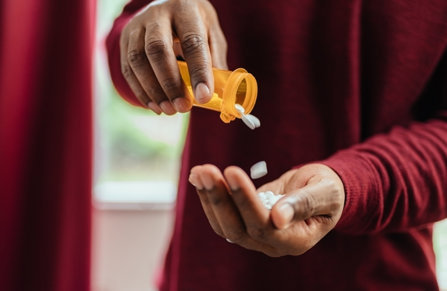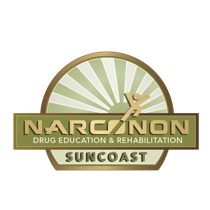MAT is Not a Solution to Addiction

Solution: noun; the act of solving a problem, question, etc.; the state of being solved; a particular instance or method of solving; an explanation or an answer.
Since the DEA released its 2018 statistics on the current drug threat, it’s quite obvious that most, if not all of our attempts to handle the drug crisis have failed. The reason I say it’s failed is because the problem has gotten worse, not better. It hasn’t slowed down, rather it’s picked up steam and evolved. It’s changed. It’s gone from OxyContin in 1999 to fentanyl in 2018. Each time we think we’re getting a grip on the problem, we slide a few feet backward.
Medication-assisted treatment has been the “gold standard” for a long time as a solution for opioid addiction. While doctors are quick to prescribe Suboxone after taking some weekend CEU’s and some rehabs use it as a main part of their treatment method, I personally have yet to see any long-term success stories as a result of merely using a drug to replace the one a person was taking. And MAT is essentially just that.
You can’t use drugs to handle a problem caused by drugs. It doesn’t work that way. You can’t have a problem with opiates and take another opiate to handle the issue. What happens if you stop taking Suboxone or methadone? What’s the likelihood of relapse afterwards? Some say that Suboxone or methadone is supposed to be used in conjunction with therapy and counseling, but I personally know of many, many addicts who got put on either drug but failed to follow up with a counselor.
Therefore, what’s happened is that addicts and treatment professionals got indoctrinated with this idea that medications that offer a quick fix or a “cure” are the way to handle addiction because the thought is that you handle the cravings with medication. And you handle the depression, anxiety, and other uncomfortable feelings with medication. And you use medication to treat the disease.

The fact remains, MAT is not a solution to addiction, at least in my own opinion. It essentially solves nothing. I’ve seen way more successes with drug-free recovery than with Suboxone or methadone. The problem is that addicts become dependent on the drug to get through life and to keep their addiction at bay, which is pretty much the same thing as addiction anyways. So, nothing changes. You’re still a slave to a substance. A person is using a drug to handle problems and get through life, but that doesn’t work forever.
An addict can’t stay on MAT for the rest of their lives and those drugs were never intended to be used that way. Both Suboxone and methadone were originally used as short-term meds to use to assist acute detox. They weren’t designed to be taken long-term, but that’s exactly what’s happening. From incorrectly using these substances, we’ve created a whole new breed of addict, and that’s the MAT addict. I’m sorry, but in my opinion, if you’re on Suboxone or methadone, you’re not clean.
Think twice before taking any more drugs to handle your problem with drugs. Get drug free. Not heroin-free, not Oxy-free, but completely off of everything. Only then do you stand a chance at achieving long-term sobriety.
